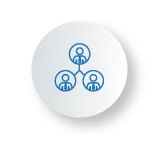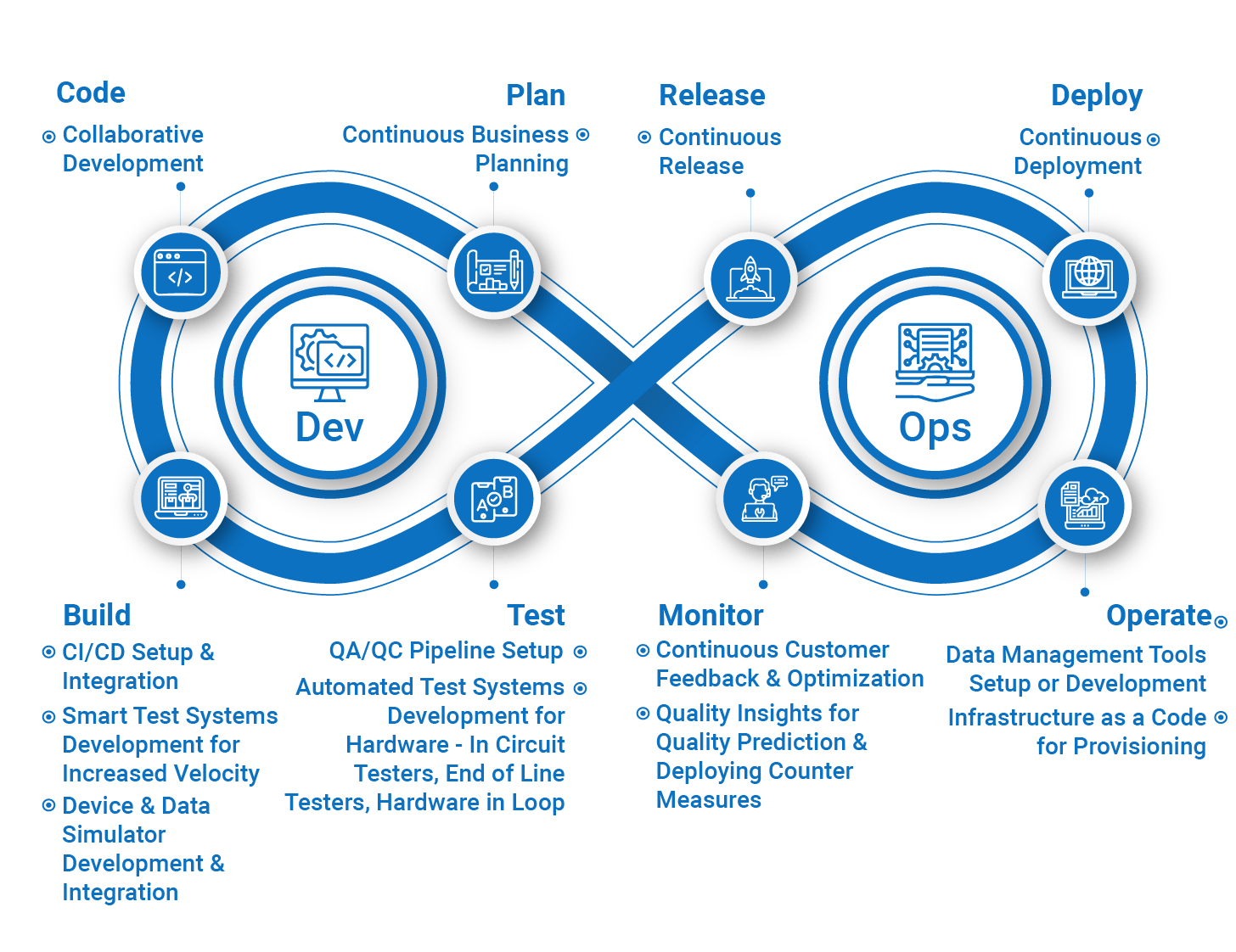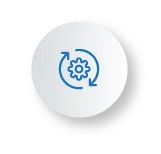Introduction
DevOps consulting services can be described as a service dedicated to continuous development process. It is unlike the traditional development practice where each department/team functioned as a separate entity. While there is no unique definition for DevOps, its widely accepted meaning is “a set of practices intended to reduce the time between committing a change to a system and the change being placed into normal production, while ensuring high quality”. Three computer science researchers, Len Bass, Ingo Weber, and Liming Zhu, from the Commonwealth Scientific and Industrial Research Organization (CSIRO) and the Software Engineering Institute (SEI), proposed this definition.
DevOps consulting services consists of practices that combine software development (Dev) and IT operations (Ops) to create an open communication channel that enables seamless collaboration between the teams. It brings together people, product and process for enhanced performance. The continuous integration of activities enables the decision makers and business owners to get a clear picture of the entire business process. This unified operational method enables them to make informed business decisions and achieve quality results, ultimately resulting in higher profit margins.
Why Industries Need DevOps Services?
The other benefits of implementing DevOps are:

Reduces go-to-market time
Enhances cost efficiency during SDLC

Reduces in defects across SDLC

Delivers fast solution as it builds better collaboration between teams

Allows companies to set up a continuous improvement program

Improves the overall performance of the firm

Helps improve customer experience

Reduces the percentage of failures and rollbacks

Faster return on investment
DevOps Services Provided by Utthunga
We provide industrial DevOps consulting services for both on-premises and cloud environments. Our team of diverse engineers has expertise in the following:
- CI/CD setup and integration
- QA/QC pipe line setup
- Device and data simulator development and integration
- Data management tools setup or development
- Quality insights for quality prediction and deploying counter measures
- Smart test systems development for increased velocity
- Automated test systems development for hardware – in circuit testers, end of line testers, hardware in loop

Why Utthunga for DevOps Consulting Services?
In terms of capability, capacity and footprint, the challenges of implementing Industrial DevOps processes for your production plants include but are not limited to:
- Continuous integration and continuous delivery (CI/CD)
- Choosing the right metrics, DevOps tools & technologies
- Continuous deployment challenges that includes incident response systems, V&V
- Real-time monitoring and much more
As a part of our DevOps consulting services, we offer:

Consulting and Planning

Pilot Framework Creation

End-to-end implementation
FAQs
1. Which DevOps tools and technologies do you use?
In DevOps consulting services, a wide range of tools and technologies are used to streamline the product lifecycle—from design and development, to testing, release, deployment, and operations. Leading DevOps consulting companies typically work with:
- CI/CD tools (Jenkins, GitLab CI/CD, GitHub Actions, Azure DevOps) for automated build and deployment
- Configuration management tools (Ansible, Puppet, Chef) for consistency and efficiency
- Containerization and orchestration (Docker, Kubernetes) for scalability and reliability
- Infrastructure as Code (IaC) solutions (Terraform, CloudFormation) for automated provisioning
- Monitoring and logging (Prometheus, Grafana, ELK Stack, Splunk) to ensure system health
- Security and DevSecOps integrations (SonarQube, HashiCorp Vault) to safeguard the pipeline
By combining these tools with proven best practices, DevOps consulting services enable faster release cycles, higher quality, stronger security, and improved collaboration across development and operations teams.
2. How does a DevOps company secure data?
A reliable DevOps company ensures data security is built into every stage of the DevOps lifecycle. Through comprehensive DevOps consulting services, best practices such as encryption, role-based access control, secure CI/CD pipelines, vulnerability scanning, and compliance with industry standards (ISO, GDPR, HIPAA, etc.) are implemented. Security testing, monitoring, and DevSecOps integrations further safeguard applications, infrastructure, and sensitive business data. By embedding security into development and operations, a trusted DevOps consulting company minimizes risks while enabling faster, more secure delivery.
3. What’s your approach to CI/CD?
In our DevOps consulting services, the approach to CI/CD focuses on automating and streamlining the entire software delivery pipeline. A trusted DevOps company typically designs workflows where code is continuously integrated using tools like Jenkins, GitLab CI/CD, or Azure DevOps, followed by automated testing to ensure quality at every stage. Deployment pipelines are then configured to deliver applications reliably to different environments with minimal manual intervention. This approach reduces errors, accelerates release cycles, and provides continuous feedback, enabling organizations to achieve faster time-to-market with greater stability.
4. How do you handle cloud infrastructure?
Through DevOps consulting services, cloud infrastructure is managed using automation, scalability, and security best practices. A professional DevOps company typically leverages Infrastructure as Code (IaC) tools like Terraform or CloudFormation to provision and manage resources consistently across AWS, Azure, or Google Cloud. Continuous monitoring, cost optimization, and security hardening are built into the process, ensuring that applications are highly available, resilient, and compliant. This approach allows businesses to scale on demand while maintaining full control and visibility of their cloud environments.
5. How do you measure DevOps success? Which KPIs do you track?
In DevOps consulting services, success is measured using a mix of performance, quality, and efficiency metrics that reflect both technical and business outcomes. A professional DevOps company typically tracks key KPIs such as:
- Deployment frequency – how often new features or updates are released
- Lead time for changes – the time taken from code commit to production release
- Change failure rate – the percentage of deployments that cause failures
- Mean Time to Recovery (MTTR) – how quickly systems recover from incidents
- Automation coverage – the extent of testing, monitoring, and deployments automated
- Infrastructure and cloud cost optimization metrics
By monitoring these KPIs, DevOps consulting firms ensure continuous improvement, faster delivery, higher reliability, and measurable business value.
6. How do you manage collaboration between Dev and Ops teams?
Effective collaboration between development and operations is at the core of DevOps consulting services. A trusted DevOps company fosters this collaboration by breaking down silos through shared goals, integrated workflows, and strong communication practices. Teams work together using tools like Jira, Slack, and CI/CD platforms that provide real-time visibility across the pipeline. By embedding automation, feedback loops, and a culture of continuous improvement, Dev and Ops teams align seamlessly—resulting in faster delivery, fewer errors, and greater business agility.
